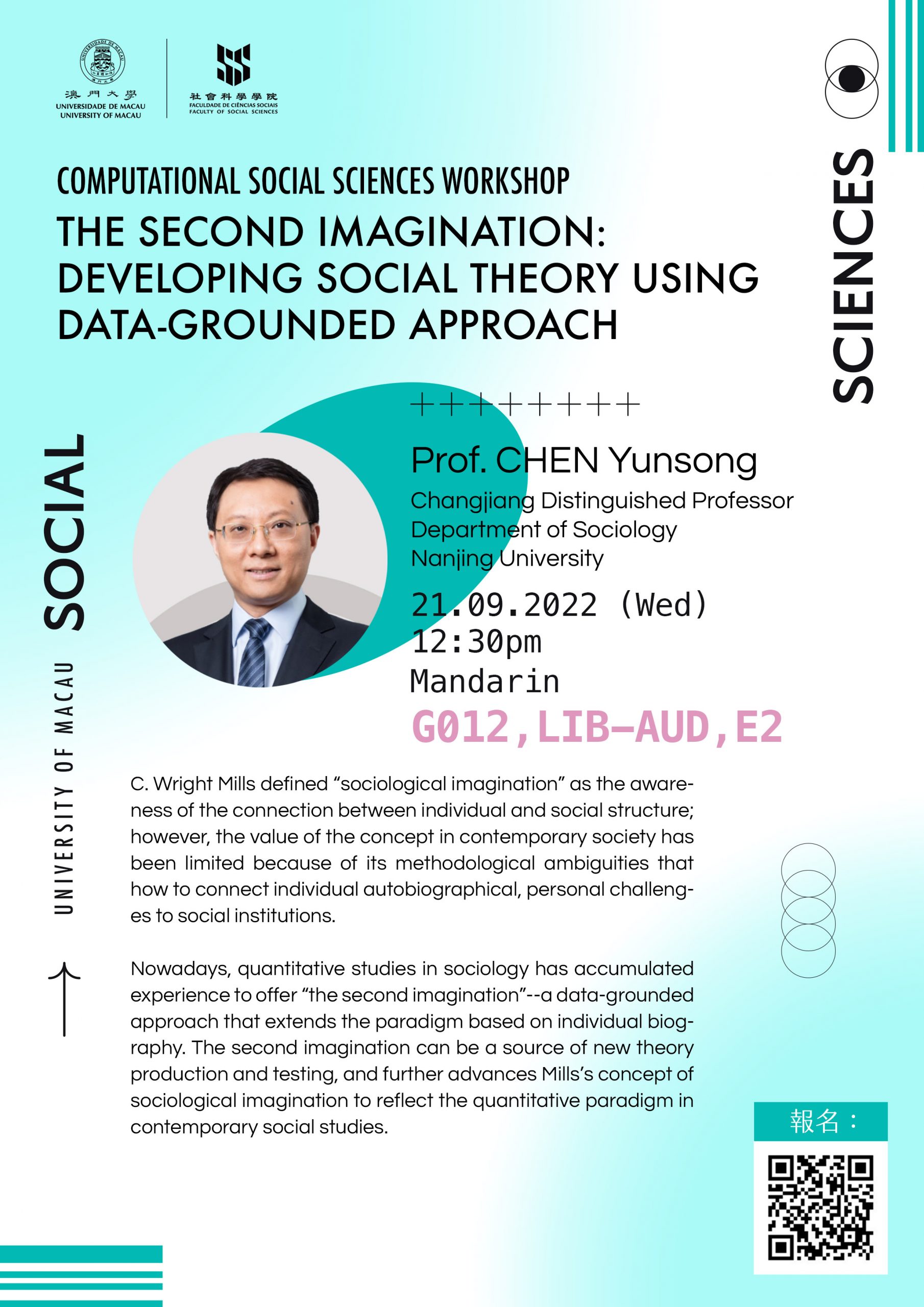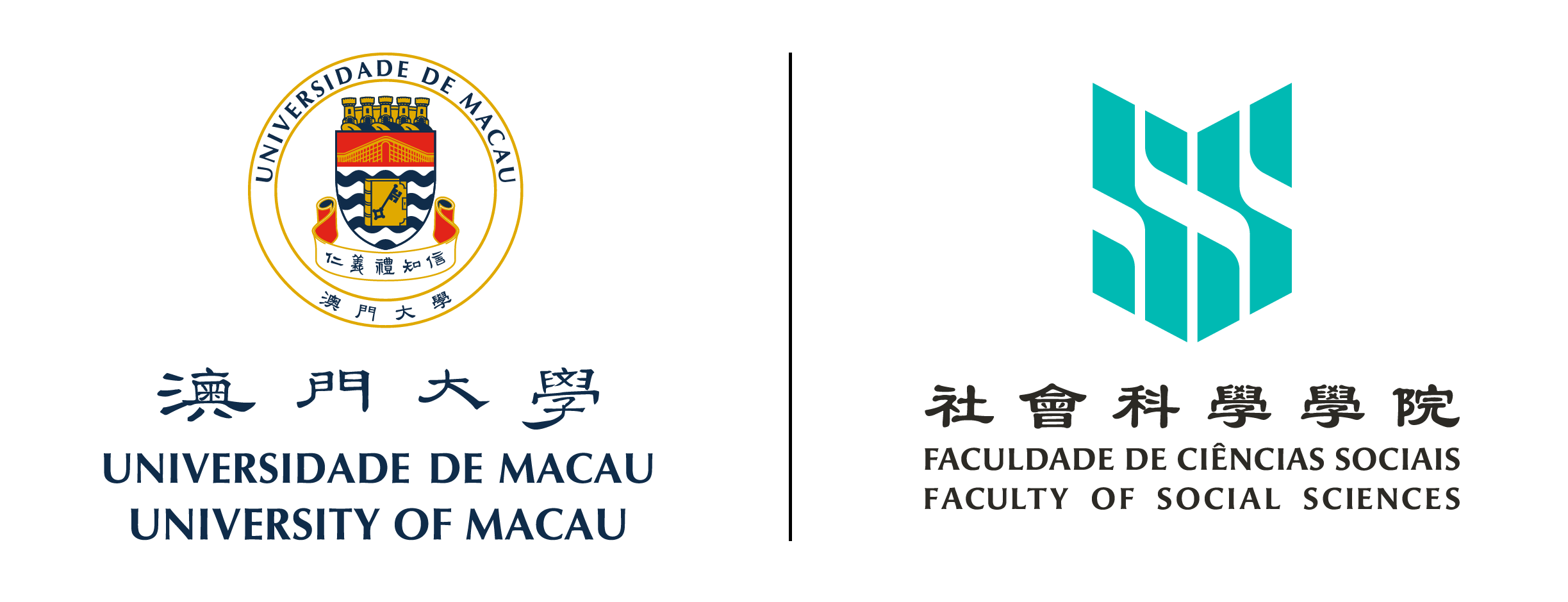Computational Social Sciences Workshop: The second imagination: developing social theory using data-grounded approach
Date & Time: 21/9/2022(Wed), 12:30pm
Venue: E21B-G002
Speaker: Distinguished Professor, Department of Sociology, Nanjing University
Register: https://forms.gle/BgybgwW3ZFR8QUw26
About the speaker:
Dr. Yunsong Chen received his PhD in sociology from University of Oxford in 2011. He is a Changjiang Distinguished Professor of Sociology at the Department of Sociology, Nanjing University. His main research interest focuses on computational social science, advanced quantitative methodology, social capital and networks, and big data in social science. Reflecting on his broad intellectual pursuits, his academic work has appeared in leading sociological journals including British Journal of Sociology, Journal of Social Computing, Poetics, Social Networks, Social Science & Medicine, and Social Science Research, as well as the top tier Chinese journals, such as Sociological Studies(社會學研究)and Social Sciences in China(中國社會科學). He was awarded the Distinguished Scholarly Publication Award by the Lu Xueyi Sociology Development Foundation.
About the workshop:
In the digital era, large amounts of demographic, behavioral and network data are now being produced, processed, transmitted, and analyzed at unprecedented speed, breadth, depth, and scale. Big and more complex data have become increasingly more available, accessible, and affordable. Focusing on the development and application of data science analytical techniques for complex human behaviors, human artifacts, as well as interactions between human artifacts and behaviors, Computational Social Sciences addresses fundamental social problems in various fields, including sociology, psychology, communication, political science, economics, management, tourism, etc.
The Computational Social Sciences Workshop is an interdisciplinary seminar series featuring distinguished speakers of broad interests in the social sciences who use computational methods to analyze data for research into human behaviors or artifacts. This workshop aims to bring together students, research fellows, and faculty members who are interested in computational social sciences for interdisciplinary collaborations.


